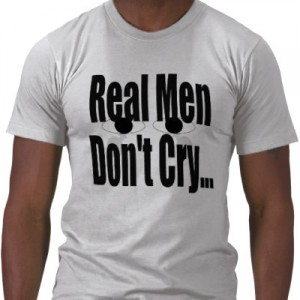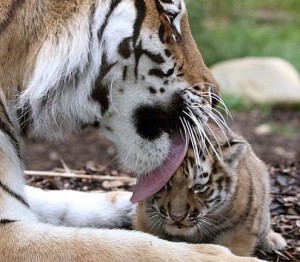I have always been grateful that I have grown up in a good home, especially in this age where love deprived childhoods and absent parent(s) are far too common. Still, it hasn’t always been a bed of roses, and I must say it has been, at times, a grueling experience. I do not condemn my childhood, which in all honesty has been pretty blessed. However, I’d like to share a little about my insights looking back on my growing up years, and take a little peek at the sort of trials and challenges faced by those, like me, who grew up under similar circumstances.
To understand my perspective and experiences, one ought to know a little about the kind of environment that I grew up in. In this part of the world, society is shaped almost evenly by two major cultures. We are, inherently, an Asian society, and therefore place high importance on “Asian values” (I use this term loosely since the general understanding of the Western world is that “Asian” means “Chinese”, which isn’t always the case) such as filial piety and the concept of “face”. However, due to our history, English has been an integral part of our lives, and it follows naturally that English literature, music and movies are consumed thereby affecting our traditional “Asian” outlook in life. Even in the sixties and seventies, my parents were already heavily influenced by the ideas and cultures of the Western world.

REAL MEN DON’T CRY
One of the first things I was told as a small boy was that men do not cry. It didn’t matter that I was only a child. As long as you are male, the expectation seems to be that you should not cry no matter the circumstance. I have been ridiculed, been victim of sarcastic remarks and laughed at for crying, and not just by strangers or outsiders.
I attribute this attitude to the clash in cultures since on one hand, Western society is fine with children expressing themselves, but expect them to learn to control it as they mature, whereas “Asian” society expect children to be well behaved, capable of not causing a nuisance and suppressing their emotions. So “Real Men Don’t Cry” becomes translated into “All Males Don’t Cry”.
You can imagine what it must be like, and it is little wonder that most guys grow up not knowing how to express their emotions. I believe it’s extremely unhealthy, but it does seem like the general accepted behavior is one that is purely logical, with little to no room for emotional responses. One should control one’s emotions, but if it is locked down to the point one cannot feel and express oneself… then one is not truly living. One example would be to take a look at all those stoic people in Japan who never express their true emotions, well they kill themselves at a rate of about once every 15 minutes. The primary cause for this high rate is depression which is in turn caused by failure to cope with social pressure. I don’t think suppressing emotions help you to cope with that much.
And yes, I do still cry when the situation demands it. I think of it as a great strength to me, because it is definitely easier to choose to suppress your emotions to conform to societal expectations rather than to release it as I believe it is meant to, and THEN I will be able to face the issue instead of crumble from the pressure.
SHELTERED YOUTH

Coming from the middle and upper middle class in this region, it is all too common for us to grow up under a “Tiger Mom”. Naturally, many people get up in arms claiming that this sort of overbearing parenting is wrong. Instead of going into a discussion on whether it was good or bad, I’ll just state that to some extent, that was how I grew up. Emphasis on education was priority (I was sent to countless tuition classes), as was “good” values. The result of which we grew up as “obedient” children with good exam results.
Unfortunately, it appears there are also quite a number who due to this style of upbringing face a significant challenge as they mature; They know little about true responsibility and maturity. Unless parents know when to start teaching responsibility and relinquishing their hold on their children to start learning, it is very possible that the child ends up not knowing how to make decisions for themselves. Many that I meet appear to have a disappointingly narrow view of the world even at tertiary education level, aiming to “Score ‘A’s, get a good job, get married, and live a good life”. This fundamentally inadequate perspective IMHO is a direct result of having parents dictate the direction of a child’s life throughout without giving proper room for the child to discover him/herself. Again, I am not advocating that this parenting style is wrong, merely that I believe a balance is important, and knowing the critical point to let go and let the child learn to make choices is one that makes a significant difference in the child’s life.
The controversy to the different parenting methods have been widely debated. Perhaps it is also a matter of priorities. Western parenting prioritizes what the child feels, which is not wrong in itself but too many do so at the behest of good discipline. On the flip side, Asian parenting prioritizes “duty”, and far too many ignore the emotional aspect of the child. To me, either extreme is undesirable, and a sort of balance between the two is, I believe, the sweet spot where I have been most fortunate to be placed in. Having great parents who understand the merits of parenting with discipline and affection makes a very big difference in a child’s life. I know it has in mine.
EXPECTATIONS
Just like many Asian Americans, we struggle often with expectations of who and what we are. Perhaps this applies only to the Chinese, but I have lost count the number of times people have made snide remarks about my inability to articulate proficiently in Mandarin, or to read Chinese characters. Responses like “You’re not Chinese if you don’t speak / read” are far too common. Mostly we learn to ignore such responses, but I can honestly say it occasionally goes a bit too far and I have my own opinions on such thinking.
Let’s be blunt. My ethnicity is Chinese, but I did not learn how to speak or write in Chinese (Mandarin). The view that this makes me somehow deficient causes me to wonder whether the inherent value placed in the expected identity of a person supersedes the value of the person itself. I do not claim, nor try hard to be more “Chinese”, and don’t think my value as a person is any less because of this. Pride is fine and is probably something comes due to strength of a culture. However, when this pride gets to the point it becomes arrogance, I think it undermines what value that culture may have had.
RELATIONSHIPS

I am not entirely sure how truly certain movies portray American culture, but that is significantly different from the local scene, particularly when it comes to girls. In Western culture, it is perfectly fine to be straightforward, and being friendly and approachable is something that is acceptable, even expected, in social settings.
Basically, when it comes to approaching girls, it is perfectly acceptable in the West to do so by simply going up to her and asking for her name and number. In fact, this becomes a positive point as the guy would be viewed as confident and secure to be able to do that. Try approaching a more “Asian” girl, and they’d look at you as if you were a pervert. The first thing that runs across their mind would be “I don’t know you so why should I have anything to do with you?” Ironically, this applies only if the guy isn’t Caucasian. The “right” way to approach them is to find some activity or common ground, and only WHEN there is one, then opening up to talk to them is acceptable.
It seems counter-intuitive that any intentional actions to get to know someone ends up working against you because it is deemed “unnatural”. This probably stems from the significantly more conservative nature of “Asians”. Of course, we are all affected by both cultures, and it really depends on which culture one adopts more that affects whether we end up with a significantly more conservative or liberal perspective when it comes to relating to strangers. Again, growing up in the middle of both allowed me to view the effects of both types, and I have adopted what I believe is a balance of conservatism and liberalism (from my perspective).
These are just some of my perceptions growing up and how they have shaped my outlook in life. I admit I am probably a little more liberal although I am still by most standards pretty “Asian”. I get irritated by those who desire only to live life through auto-cruise having little to no self-actualization and live life by the norm. That is something I could never be satisfied with.
